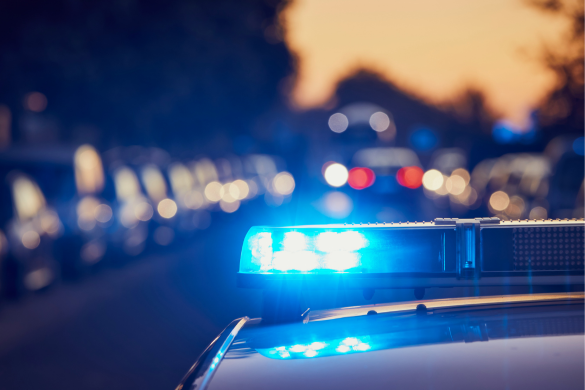Freeburn Injury Attorneys | Legal Insights Blog
Being pulled over by the police can be a nerve-wracking experience—especially if you’re unsure of what to expect or how to respond. While every traffic stop is unique, understanding your rights and knowing how to conduct yourself can help keep the situation under control and reduce the risk of misunderstandings.
Below is a general guide for navigating police roadside stops in Pennsylvania. For advice tailored to your specific circumstances, always consult with a qualified traffic or criminal defense attorney.
15 Key Tips for Handling a Police Stop in Pennsylvania
- Don’t drive or ride while impaired.
- Activate your right turn signal when you see and/or hear the police vehicle and pull safely off the roadway.
- Bring your vehicle to a stop as far away from moving traffic as possible, activate your four-way hazard lights, and turn off your vehicle.
- Keep your hands visible on top of the steering wheel and don’t make any sudden moves.
- Remain calm and be respectful at all times.
- Say as little as possible throughout the encounter and don’t say anything that could be incriminating. You are within your rights to invoke your constitutional right to remain silent, if necessary.
- Have your paperwork organized, but don’t reach for it until asked. When asked, let the officer know where it is and ask for permission to retrieve it.
- Concealed firearm:
- You should consider proactively informing the officer that you have a concealed firearm as a courtesy, especially if the firearm is on your person or in view.
- When the officer asks if you know why you were pulled over, say “NO.”
- When the officer tells you why you were pulled over, don’t argue or be belligerent.
- If the officer asks you to get out of your vehicle or to get off of your motorcycle, you MUST do so.
- Close your door behind you when you get out of your vehicle.
- If the officer asks for permission to search your vehicle, you should refuse, EVEN IF YOU HAVE NOTHING TO HIDE.
- “With all due respect, I DO NOT consent to the search of my vehicle without a warrant.”
- If you should receive a citation, your signature on the citation is only acknowledging your receipt and is not an admission of guilt.
- When the stop is completed, ask the officer if you are free to go. If the officer says “yes,” activate your turn signal and safely and smoothly return to traffic.
- DUI:
- You should consult an experienced DUI attorney before you drive about field-sobriety tests and post-arrest blood, urine, and breath tests. You may not be allowed to speak to a lawyer after you’ve been stopped, and a request to speak to a lawyer after arrest may be construed as a refusal to submit to blood, urine, or breath tests, which could have serious consequences.
Silence is golden. What you say can and will be used against you.
Disclaimer: These general guidelines, and may not apply to your specific situation. This website may not be construed as legal advice. Freeburn Law is a personal injury law firm, and does not handle traffic tickets, DUI, and/or criminal law matters. You should review all of the tips contained in this article with an attorney who handles traffic, DUI, and criminal matters. This article is not intended nor may it be construed as legal representation.


